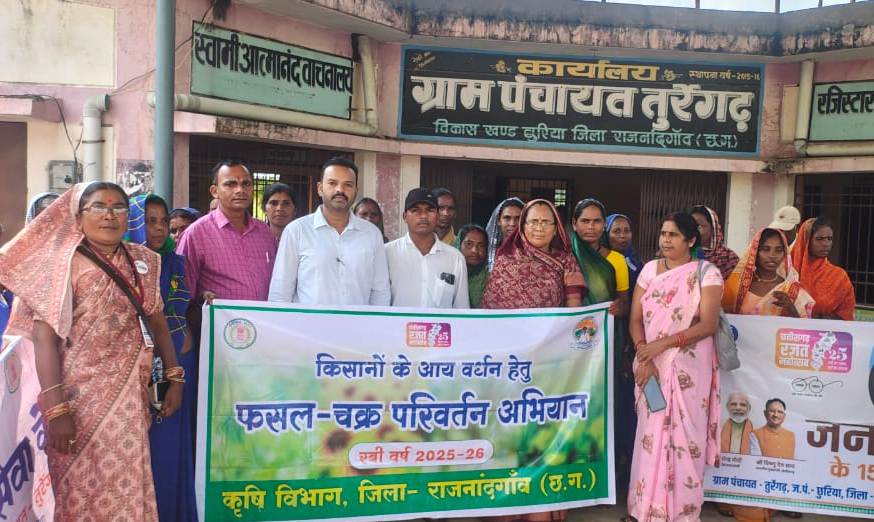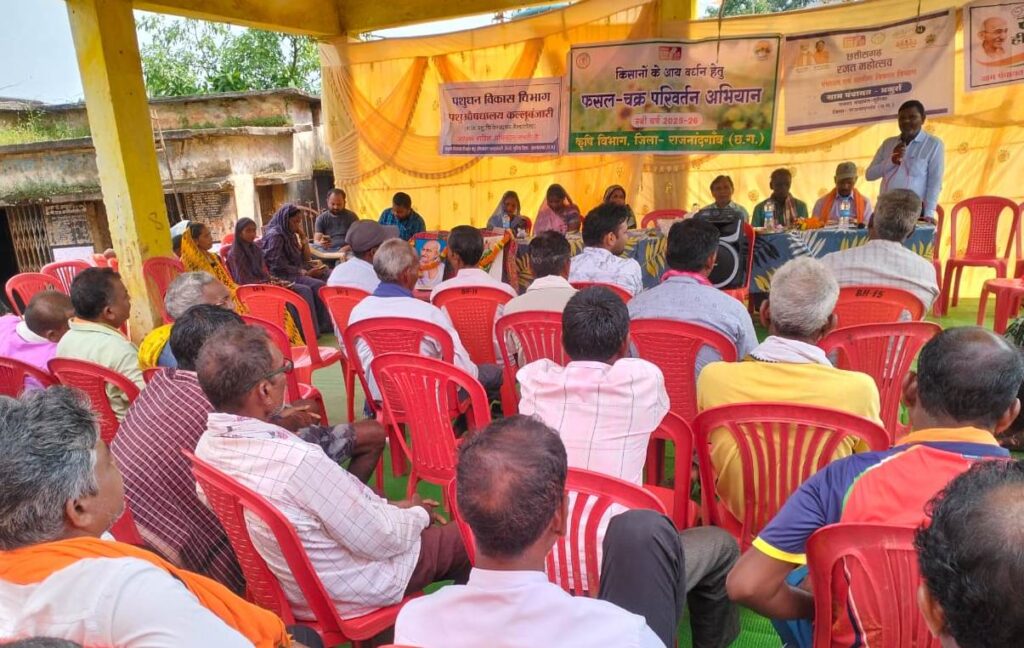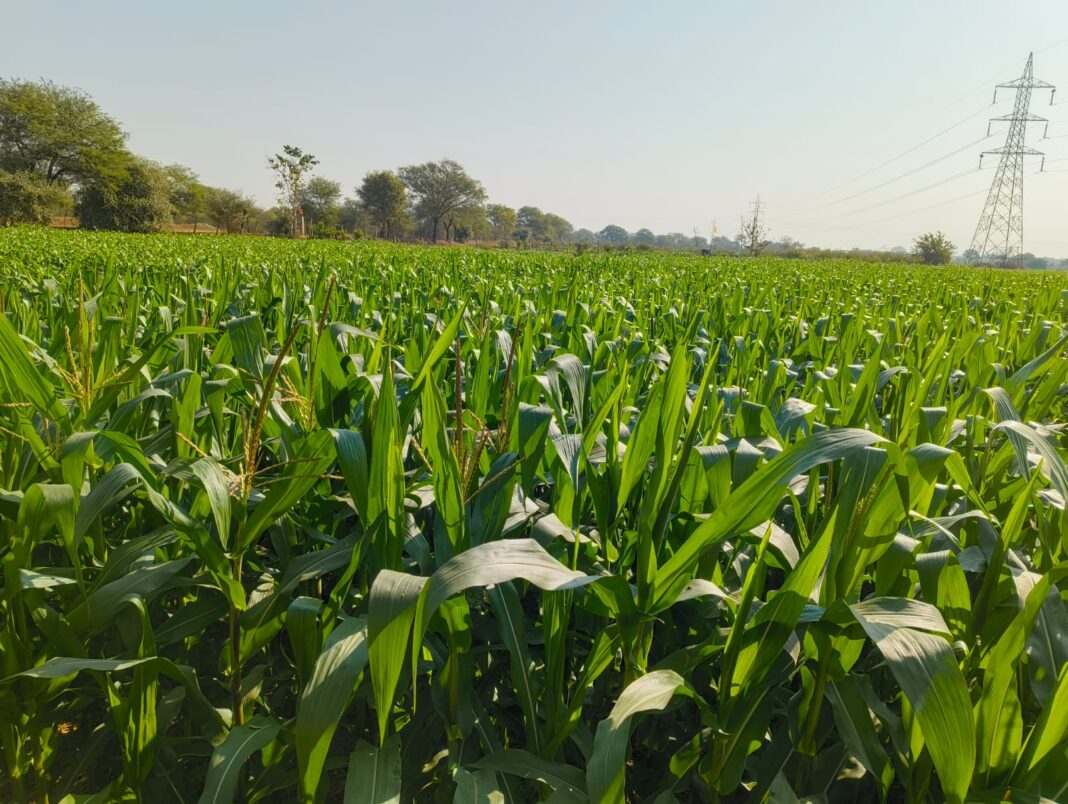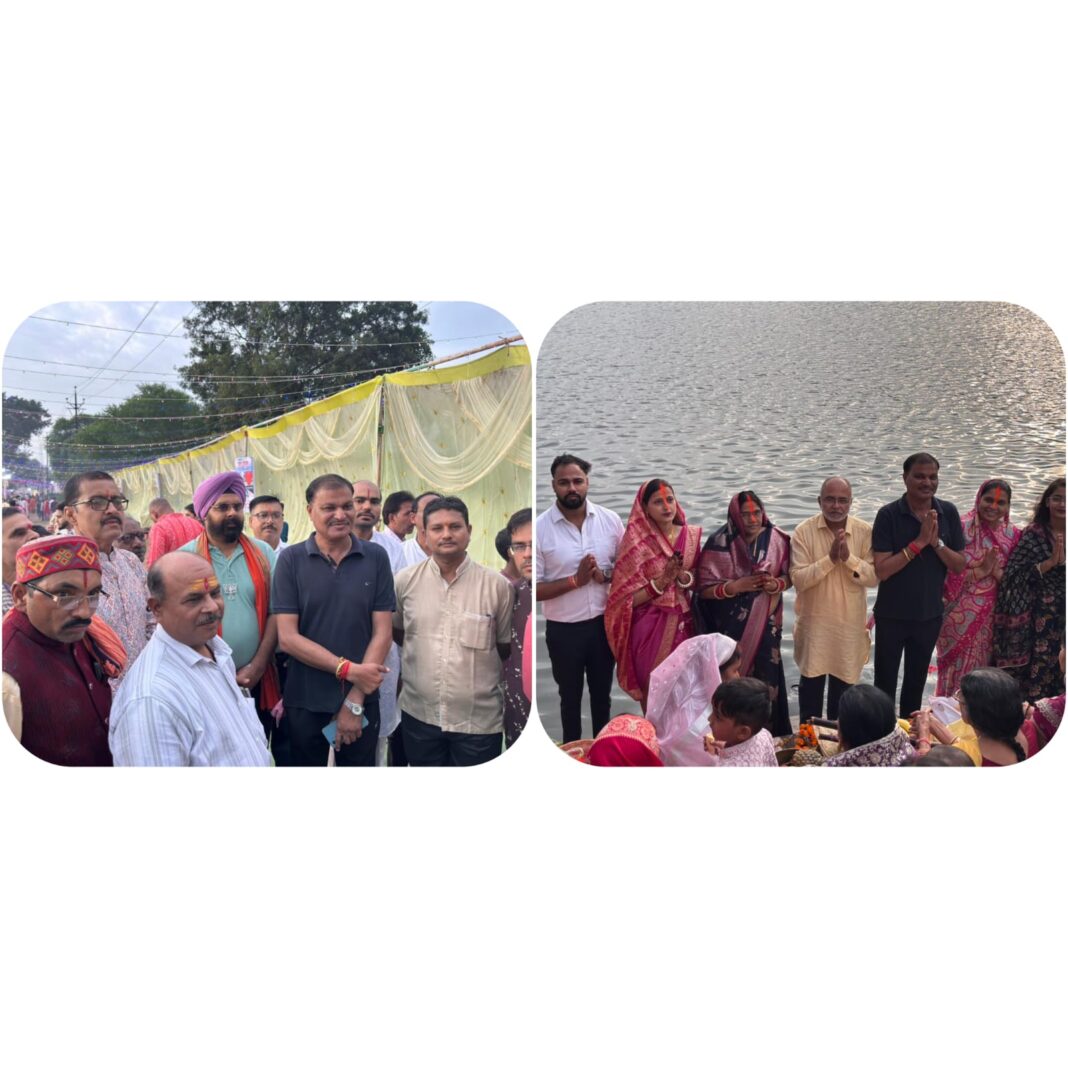Administration Encourages Crop Diversification as Groundwater Levels Decline in Rajnandgaon
Published on: October 28, 2025
By: BTNI
Location: Rajnandgaon, India
The rapidly declining groundwater level in Rajnandgaon district has emerged as a serious concern. To address this growing crisis, the district administration is promoting community participation and encouraging farmers to shift towards low water-consuming Rabi crops. The Agriculture Department has initiated a comprehensive strategy to support this transition, aiming to conserve water, strengthen the rural economy, and promote environmental sustainability.

Field-level agricultural officers are organizing farmer awareness programs and village workshops, urging farmers to adopt crops that require minimal water. Simultaneously, women self-help groups under the leadership of Padma Shri awardee Phoolbasan Yadav are carrying out the “Neer Aur Naari Jal Yatra” campaign to spread awareness about water conservation and crop diversification.
A Warning Sign
According to the Central Ground Water Board, the Rajnandgaon, Dongargaon, and Dongargarh blocks have now been classified as semi-critical zones. If timely measures for water conservation and groundwater recharge are not implemented, the region risks slipping into the critical category, affecting not only agriculture but also drinking water availability.
Data highlights the urgency:
- A person uses nearly 55 liters of water daily.
- A village consumes around 160.60 lakh liters of water annually.
- In comparison, producing just 1 kg of summer paddy requires around 2000 liters of water.
This means that 40 quintals (1 acre) of paddy can consume nearly the equivalent of a village’s annual drinking water supply. Hence, shifting from high-water crops like summer paddy to low-water Rabi crops is now essential.

Low Water Use, Higher Returns
Traditionally, farmers sow wheat, chickpea, maize, lentils, and mustard during the Rabi season. However, due to rising water scarcity and past losses in summer paddy, the Agriculture Department has set a target of cultivating 88,000 hectares under Rabi crops this year, including 9,000+ hectares of maize in place of summer paddy.
Maize requires three times less water than paddy and provides higher profit margins. Similarly, wheat, mustard, pulses, and oilseeds are well-suited to the district’s climate and have strong market demand.
Support from the Private Sector
Companies like Gourmed Popcornika, Abyss Industries, and Rajaram Maize Factory are partnering with farmers to promote maize cultivation, offering direct procurement, assured buying arrangements, and market-linked pricing—enhancing farmer confidence and income security.
Government Support
Deputy Director Agriculture, Tikam Singh Thakur, informed that under the Price Support Scheme, chickpea, lentil, and mustard will be purchased at Minimum Support Price (MSP) this year. He urged farmers to adopt low water-intensive crops to secure better economic returns and reduce farming risks.
Also read- https://www.btnewsindia.com/21-naxalites-surrender-arms-in-bastar-deputy-cm-vijay-sharma-welcomes-move-toward-peace-and-rehabilitation/ https://www.btnewsindia.com/preparations-in-full-swing-for-pm-modis-visit-to-raipur-bjp-holds-review-meeting-at-musra-mandal/
Community-Led Water Conservation
Women groups and farmer collectives are also promoting techniques such as rainwater harvesting and drip irrigation, making water conservation a community movement.
A Sustainable Tomorrow
Encouraging Rabi crops with low water demand not only safeguards farmer livelihoods but also helps protect groundwater reserves for future generations. This initiative marks a positive step toward strengthening the rural economy and ensuring environmental resilience.
Public Appeal:
Farmers are encouraged to join this campaign, adopt low-water Rabi crops, and contribute to preserving water for the coming generations while securing their own financial stability.




